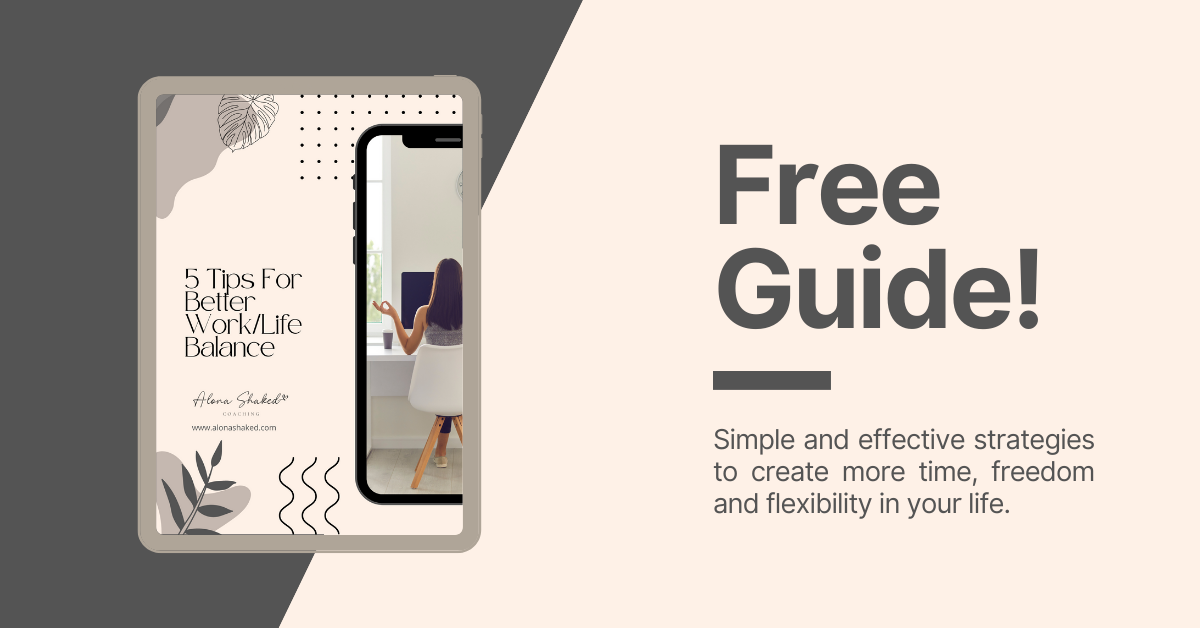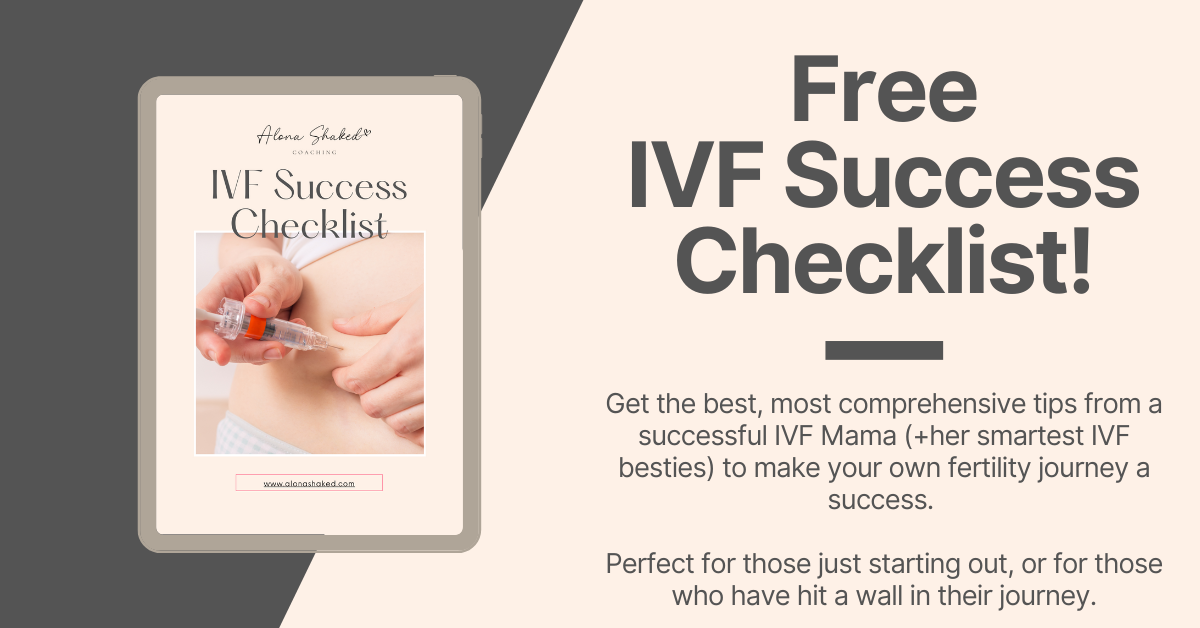Do Women Have To Choose Between Career And Family? Lessons From Serena Williams
Serena Williams published a beautiful and emotional farewell to her tennis career in this month’s Vogue. If you are a mother or are trying to conceive, I highly recommend you read this piece.
If only I had a dime for every time I heard a woman (including myself, by the way) say, “I feel like I have to choose between my career and having a family.”
In fact, I did make that choice when I quit my job as the Executive Director of the Hemophilia Foundation of Northern California in order to focus on IVF. Injecting myself with drugs in the bathroom stall at work, traveling for conferences, and late night events were just not an option for me.
And if I had to make that choice again, I would. I have no regrets. But that doesn’t mean it wasn’t hard. And while being a mompreneur and coach these days has its benefits (like flexibility), I still have to balance my career with my responsibilities as a mother. And that’s not easy.
So when I read Serena’s article, I instantly felt connected. “If I have to choose between building my tennis résumé and building my family, I choose the latter,” she says. But at the same time, her heartfelt goodbye to her passion, her life’s work, and her identity for 41 years brought tears to my eyes.
There is Grief and loss in the Evolution Of Your Identity As A Mother
Becoming a mother (including trying to conceive, which for some can take years), is an evolution of our identities. By the way, Serena coined the terms “evolution” instead of “transition” out of sensitivity to the meaning of the word transition to certain people, and I love that.
I also refer to this evolution into motherhood as “matrescence.”
There is grief and loss involved in matrescence. Whether it is giving up your career, cutting back on other areas of your life, making lifestyle changes in order to conceive or carry a pregnancy, giving up control over your body (now more than ever an issue in half of the United States), or just giving up your autonomy, it is normal and ok to experience sadness alongside the joy when you go on this journey.
The Disproportionate Burden Of Parenthood On Women
But what bothered me about Serena’s article was her statement that: “If I were a guy, I wouldn’t be writing this because I’d be out there playing and winning while my wife was doing the physical labor of expanding our family.”
And therein lies the problem. Women are disproportionately burdened (or gifted depending on how you look at it) with the physical demands of conception, pregnancy, birth, and post-partum.
Some of that is biology. While uterus transplants are actually a thing now, I don’t believe any men have gotten pregnant yet. And anyone going through IVF knows that the majority of the physical burden typically falls on the female partner (or in the case of a same sex couple, the partner who is giving her eggs and/or carrying the pregnancy). Injections, hormones, lifestyle changes, ultrasound appointments every other day, surgical removal of eggs under anesthesia, and so on.
Don’t get me wrong, my partner did what he could during the process. He took vitamins, actually had a surgery himself to fix a varicocele vein, and supported me physically, emotionally, and financially during the 3 years I spent getting pregnant, being pregnant, giving birth, and for the fourth trimester.
Yes, the fourth trimester is a thing. Even if you are like me and not breastfeeding, your body needs time to heal, recover, regulate its hormones, and meanwhile you have a baby waking up multiple times a night - making it difficult to bring your A-Game during the daytime.
My partner did extra chores. He woke up to feed Ella her bottles in the middle of the night. He sat with me in the hospital for the excruciating 48 hours of labor and my subsequent emergency C-Section. He was there for me, for us.
But - he also worked the whole time I went through IVF. He did not have to attend the ultrasounds, although he chose to come to a few of the big ones. He did not have to be home at specific times for injections. He did not have to take the day off (and one time, a week off due to landing up in the ER) for an egg retrieval. He wasn’t sick for months during my pregnancy and he was walking normally during the final month (I was on modified bedrest). He went back to work a week after I gave birth, while I could still barely sit up without assistance.
My partner did the best he could to support me and our family, and he was amazing. But that doesn’t take away from the fact that the system is totally broken and stacked against women.
So How Can Women Have It All?
If Serena Williams can’t do both, how are the rest of us supposed to make this work? Are we doomed to sacrifice our dreams? Must we give up our careers? Our passions?
I don’t have an answer for this. In my case, I have been lucky enough to find a career that I enjoy as much or more as running a non-profit that offers me a lot more flexibility. And I am also lucky enough to have tons of time management tricks up my sleeve that I use on a daily basis and that I teach my clients - especially my working mamas and aspiring mamas.
But what about women who want to be athletes? Or surgeons, like my husband, who works 120 hours a week? Or partners at law firms where billable hours also mean 80+ hour weeks?
The part that pisses me off the most is that while there has been progress in certain sectors, especially tech, in providing family benefits to enable women to stay in the workforce, the benefits are shallow and narrow.
It’s nice to get infertility insurance (even though typically it has a cap that is too low for many women.) It’s nice to have a daycare on-site at your office, or a stipend for childcare. It’s nice to have paid parental leave for longer than 6 weeks - for BOTH parents.
That should be the BARE MINIMUM at every job in this country. Instead, the vast majority of people have zero coverage for infertility, issues with access to prenatal care, NO paid parental leave or a measly 6 weeks of FMLA at most.
I’ll never forget going to the pharmacy and paying hundreds of dollars for an anti-nausea medicine safe to use in pregnancy, while meanwhile paying a mere $2 copay for narcotics and benzodiazepines. Seriously, where the fuck are our priorities?
Deep systemic changes are needed to truly equalize women in the workforce
If we really want to see a change, the change has to be deeper. A woman should feel that it is OK to take time off to go to IVF appointments. A woman should feel that it is OK to take days off or work from home when she has morning sickness (which for many is actually all day and night-long sickness).
A woman should be able to bond with her baby without worrying about money or rushing back to work. So should a man! Partners should have equal access to parental leave to alleviate some of the burden on the woman and give families more flexibility when evolving into parenthood. No one should have to worry about how it will look if they take that time off for themselves and their families.
Do we really need people to work themselves to death in order to become partners at law firms? Can we start to shift this workaholic culture to allow people space for other things in their lives? And for G-d’s sake, can we make childcare accessible and affordable?
Sometimes I feel like we are sliding backwards instead of forwards in this country. That is why I’ll be voting my face off this November.
Coaching Can Help You Balance Your Career And Your Family (Planning)
But I also try to make a difference on a micro-level by supporting and coaching working moms and aspiring moms to find balance and fulfillment in their careers and personal lives. Whether it is time management training, stress reduction, mindset work, or helping women achieve goals faster and with more grace (like my new IVF Success Checklist), I aim to give women+ the opportunity to “matresce” with ease, grace and purpose.
If you need help, I am here for you. Reach out.


